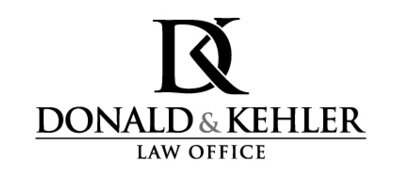Best Communications & Media Law Lawyers in Brandon
Share your needs with us, get contacted by law firms.
Free. Takes 2 min.
List of the best lawyers in Brandon, Canada
About Communications & Media Law in Brandon, Canada
Communications & Media Law in Brandon, Canada, is a specialized area of law that addresses issues related to telecommunications, broadcasting, advertising, and digital media. This field of law governs the balance between freedom of expression and regulation in various media forms, ensuring ethical standards and compliance with both federal and provincial statutes. In Brandon, local legal experts help navigate legal challenges related to media production, distribution, and communication technology.
Why You May Need a Lawyer
Individuals and businesses may require legal assistance in Communications & Media Law for several reasons. If you are facing defamation claims, licensing disputes, or privacy issues related to broadcast or online content, a lawyer can provide necessary guidance. Furthermore, legal help may be needed when dealing with contractual agreements involving media rights, compliance with advertisement standards, or issues surrounding freedom of speech and censorship.
Local Laws Overview
In Brandon, Communications & Media Law is influenced by both federal regulations and provincial statutes. The Canadian Radio-television and Telecommunications Commission (CRTC) oversees telecommunications and broadcasting, while the Personal Information Protection and Electronic Documents Act (PIPEDA) governs privacy concerns. Additionally, the Manitoba Human Rights Code impacts the sector by ensuring non-discriminatory practices in media and communication. Local laws also emphasize compliance with advertising standards and digital content regulations.
Frequently Asked Questions
What are the main federal bodies regulating media and communications in Canada?
The primary federal bodies include the Canadian Radio-television and Telecommunications Commission (CRTC) and the Office of the Privacy Commissioner of Canada.
How does defamation law work in the context of media?
Defamation in media is addressed under civil law and involves statements that unjustly harm a person's reputation. Legal standards require that the statement be false, published, and injurious to pursue a defamation claim.
Are there specific advertisement guidelines in Brandon?
Advertisements must comply with the Canadian Code of Advertising Standards, which covers issues like misleading claims and offensive content. Compliance with these standards is essential to avoid legal repercussions.
What constitutes a breach of privacy in media practices?
A breach occurs when personal information is collected, used, or disclosed without consent or beyond the bounds of relevant privacy laws, such as PIPEDA.
Can online content be regulated for offensive material?
Yes, online content is subject to regulations that aim to prevent hate speech, misinformation, and other harmful content, balancing freedom of expression with public safety and order.
What are the legal requirements for broadcasting licenses?
Entities seeking a broadcasting license must apply to the CRTC, demonstrating compliance with regulations including content quotas and technical standards.
How does copyright law impact media content distribution?
Media content distribution is governed by the Copyright Act, which protects original works and ensures that content creators have control over how their work is used and shared.
What are the legal ramifications of failing to comply with CRTC regulations?
Failure to comply with CRTC regulations can result in fines, revocation of licenses, and other penalties detrimental to business operations.
In what ways can media law address misinformation?
Media law addresses misinformation through regulations that require accuracy in reporting and advertising as well as providing avenues for redress against false claims.
What support does the Manitoba Human Rights Code offer in media practices?
The Code provides measures against discriminatory content and protects individuals from human rights violations in media-related activities.
Additional Resources
For further guidance, individuals and businesses can reach out to the Canadian Radio-television and Telecommunications Commission (CRTC), the Law Society of Manitoba, and local legal clinics specializing in Communications & Media Law. Additionally, the Office of the Privacy Commissioner of Canada offers resources on privacy obligations.
Next Steps
If you require legal assistance in Communications & Media Law, consider consulting with a local attorney specializing in this field. Start by scheduling consultations to discuss the specifics of your case and to understand your legal rights and obligations thoroughly. It is also advisable to remain updated on changes in relevant legislation and regulations.
Lawzana helps you find the best lawyers and law firms in Brandon through a curated and pre-screened list of qualified legal professionals. Our platform offers rankings and detailed profiles of attorneys and law firms, allowing you to compare based on practice areas, including Communications & Media Law, experience, and client feedback.
Each profile includes a description of the firm's areas of practice, client reviews, team members and partners, year of establishment, spoken languages, office locations, contact information, social media presence, and any published articles or resources. Most firms on our platform speak English and are experienced in both local and international legal matters.
Get a quote from top-rated law firms in Brandon, Canada — quickly, securely, and without unnecessary hassle.
Disclaimer:
The information provided on this page is for general informational purposes only and does not constitute legal advice. While we strive to ensure the accuracy and relevance of the content, legal information may change over time, and interpretations of the law can vary. You should always consult with a qualified legal professional for advice specific to your situation.
We disclaim all liability for actions taken or not taken based on the content of this page. If you believe any information is incorrect or outdated, please contact us, and we will review and update it where appropriate.










